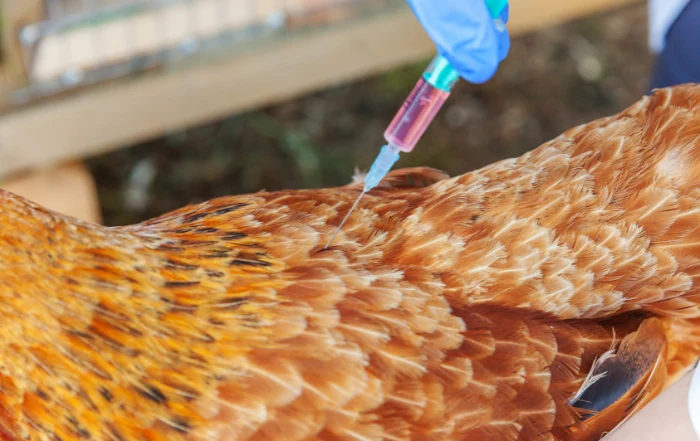The US federal administration is exploring the possibility of implementing a vaccine for avian flu in poultry following a severe outbreak that occurred last year.
The potential vaccine aims to mitigate the devastating impacts of the H5N1 virus, which affected both commercial producers and backyard egg sellers across the country.
With millions of birds culled and numerous outbreaks in wild birds, there is growing concern about the virus’s spread and potential mutation.
While the risk of human infection remains low, the Centers for Disease Control (CDC) and other agencies are taking proactive measures to address the issue.
Extent of the Outbreak and Culling
The initial cases of avian flu emerged in the previous year, leading to the loss of entire flocks and significant repercussions for the poultry industry.
Across 47 states, more than 58 million farmed birds were culled, with Pennsylvania being the hardest-hit region.
Additionally, over 6,000 positive outbreaks were confirmed in wild birds, and there have been instances of transmission to other animal species like foxes and raccoons.
The potential for the virus to mutate and infect humans further underscores the urgency to address the situation.
Human Infection Risk and Vaccination Efforts
Officials from the CDC have reassured the public that the risk of mass human infection is low, primarily affecting individuals in close contact with birds.
Currently, there is only one confirmed case of a person with avian flu.
Nevertheless, the USDA has been testing poultry vaccines, and discussions for a widespread vaccination program are underway.
Collaborative efforts between the CDC and the Agricultural Research Service are focused on developing effective vaccines, with results expected by May.
USDA Research Project and Vaccine Approval Process
In 2021, the USDA initiated a five-year research project to evaluate new vaccines and assess their impact on virus mutation rates.
While the USDA possesses several licensed vaccines, they have not yet been deployed due to their limited efficacy against the current avian flu strain.
The approval process for vaccines involves multiple stages, which can span several years.
As of now, these vaccines are still in the research phase.
Global Vaccination Efforts and US Contemplation
Countries like Ecuador and France are planning to commence poultry vaccination programs this year in response to avian flu concerns.
China, for instance, has had vaccination programs in place for decades. However, despite being the world’s largest poultry producer, the US has been cautious about implementing firm actions.
USDA representatives previously expressed concerns about the detrimental impacts on poultry trade, including the need for quarantine and surveillance testing.
However, given the ongoing challenges faced by flocks across the nation, the US appears closer than ever to moving forward with a vaccination program.
More To Discover
The US federal administration is actively considering the implementation of a poultry vaccine in response to the severe avian flu outbreak experienced last year.
The devastating impacts on the poultry industry and the potential for virus mutation have prompted proactive measures.
While the risk of human infection remains low, collaborative efforts by the CDC and other agencies are focused on developing effective vaccines.
Although the approval process and potential trade impacts present challenges, the urgency to address the avian flu outbreak has heightened, bringing the US closer to taking decisive action.















